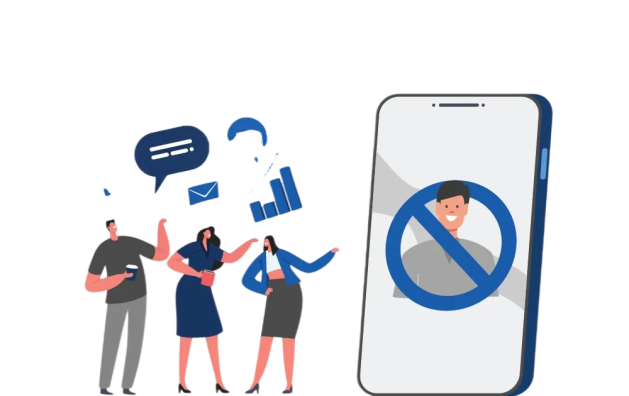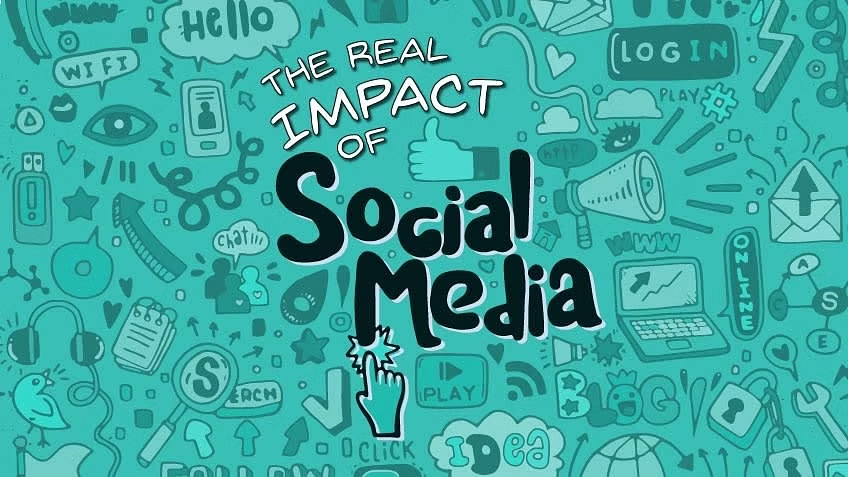Impact of Social Media on American Society, Social media has revolutionized the way Americans communicate, share information, and perceive the world. Over the past two decades, platforms like Facebook, Twitter, Instagram, and TikTok have become integral to daily life for millions of Americans. This profound transformation has brought both positive and negative impacts on American society, affecting everything from interpersonal relationships to political discourse and mental health.
Table of Contents
Communication and Connectivity
One of the most significant impacts of social media is the enhancement of communication and connectivity. Social media platforms have made it easier for people to stay in touch with friends and family, no matter the distance. This connectivity has been particularly beneficial for maintaining relationships and fostering communities, allowing for the sharing of experiences, support, and advice. For instance, Facebook groups have become a vital resource for individuals seeking support for various issues, ranging from parenting to chronic illnesses.
Moreover, social media has democratized information dissemination. Traditional gatekeepers of information, such as newspapers and television networks, no longer have a monopoly on the news. This democratization allows for a more diverse array of voices to be heard, including those from marginalized communities. Social movements, like Black Lives Matter and #MeToo, have leveraged social media to organize, raise awareness, and mobilize supporters on an unprecedented scale.
Economic Opportunities
The economic impact of social media is also noteworthy. It has created new job opportunities and business models, giving rise to the gig economy and influencer culture. Individuals can now monetize their online presence through brand partnerships, sponsored posts, and direct fan support on platforms like Patreon. Small businesses have benefitted from targeted advertising and direct engagement with customers, leveling the playing field with larger corporations.
For example, platforms like Instagram and TikTok have given rise to influencers who can earn significant incomes by promoting products and lifestyles to their followers. This has also led to the emergence of micro-influencers, who, despite having smaller followings, can effectively market niche products to highly engaged audiences. Social media has thus reshaped traditional marketing strategies and opened new avenues for entrepreneurship.
Political Discourse and Civic Engagement
Social media’s role in shaping political discourse and civic engagement in the United States cannot be overstated. Platforms like Twitter have become arenas for political debate, where politicians, journalists, and citizens interact directly. This immediacy has made political discourse more dynamic but also more contentious. The rapid spread of information and misinformation on social media can influence public opinion and even election outcomes.
The 2016 and 2020 U.S. presidential elections highlighted the power of social media in political campaigns. Candidates and their supporters used these platforms to rally supporters, spread campaign messages, and attack opponents. However, these elections also exposed the dark side of social media, including the spread of fake news, echo chambers, and foreign interference. The proliferation of misinformation and the ability to micro-target voters with tailored messages have raised concerns about the integrity of the democratic process.

Mental Health and Well-being
While social media offers numerous benefits, its impact on mental health is a growing concern. Studies have shown a correlation between heavy social media use and mental health issues such as anxiety, depression, and loneliness. The constant exposure to idealized portrayals of others’ lives can lead to feelings of inadequacy and low self-esteem, particularly among young people. The phenomenon of “social comparison” is exacerbated by platforms that highlight curated and often unrealistic images of success and happiness.
Cyberbullying is another significant issue linked to social media. The anonymity provided by the internet can embolden individuals to engage in harmful behavior that they might avoid in face-to-face interactions. Victims of cyberbullying often experience severe emotional distress, and in some cases, this has led to tragic outcomes, including suicide.
Furthermore, the addictive nature of social media can lead to reduced productivity and impaired real-life relationships. The constant need to check notifications and engage with content can distract individuals from meaningful offline interactions and responsibilities. The concept of “FOMO” (fear of missing out) drives many to remain perpetually connected, disrupting sleep patterns and overall well-being.
Also Read: America’s Education Crisis
Cultural Impact and Social Change
Social media has also had a profound impact on American culture and societal norms. It has accelerated the pace at which cultural trends spread and evolve. Memes, viral challenges, and digital art forms have become integral to modern cultural expression. Platforms like TikTok, for example, have given rise to new forms of creativity and entertainment that influence mainstream media and pop culture.
Moreover, social media has played a crucial role in fostering social change. Activists use these platforms to highlight injustices, mobilize protests, and drive policy changes. The viral spread of videos documenting police brutality has sparked national and global movements demanding racial justice and police reform. Hashtags like #MeToo have brought widespread attention to issues of sexual harassment and assault, leading to significant cultural and institutional changes.
Challenges and Future Prospects
Despite its many benefits, social media poses several challenges that need to be addressed. Privacy concerns are paramount, as users often unknowingly share vast amounts of personal data, which can be exploited by companies and malicious actors. The algorithms that govern what content users see can create filter bubbles, reinforcing existing biases and contributing to polarization.
To mitigate these issues, there is a growing call for stronger regulations and more transparent practices from social media companies. This includes better data protection, more effective content moderation to combat misinformation and hate speech, and greater accountability for the societal impacts of these platforms.
Conclusion.
In conclusion, social media has deeply impacted American society, transforming communication, politics, culture, and the economy. While it has brought numerous benefits, such as enhanced connectivity, economic opportunities, and social change, it also poses significant challenges to mental health, privacy, and democratic processes. As society continues to navigate the complexities of social media, finding a balance between leveraging its advantages and mitigating its drawbacks will be crucial for the future.


Leave a Comment